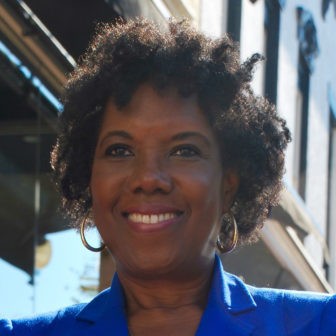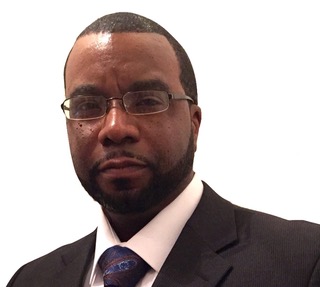
 Martin Luther King Jr. once said, “The arc of the moral universe is long, but it bends towards justice.” Today, the first day of Black History Month, faith leaders from across New Jersey are joining together to condemn one of the major injustices of our time: the stark racial disparities within our state’s youth prisons.
Martin Luther King Jr. once said, “The arc of the moral universe is long, but it bends towards justice.” Today, the first day of Black History Month, faith leaders from across New Jersey are joining together to condemn one of the major injustices of our time: the stark racial disparities within our state’s youth prisons.
These grave racial inequities were laid bare in a recent report by the New Jersey Institute for Social Justice, entitled “Bring Our Children Home: Ain’t I A Child.” Despite the fact that black and white children have similar rates of offending, black children make up almost 75 percent of those committed to juvenile facilities in our state. Indeed, black youth are more than 24 times more likely to be placed in a secure juvenile facility than white children.
For more information about racial-ethnic fairness, visit the JJIE Resource Hub | Racial-Ethnic Fairness
Religious leaders of all different faiths and denominations recognize youth incarceration — and its inherent racial disparities — is an issue of morality, not just of policy. As Rabbi Jesse Olitzky of Congregation Beth El in South Orange said, “When we see such racial disparity among incarcerated youth in our state, we are commanded to act. We must be keepers of all of our brothers and sisters, and pursue justice to end such extreme racial disparity in our prisons and specifically, among juveniles.”
This sentiment is shared by the Rev. Sara Lijia, director of the Lutheran Episcopal Advocacy Ministry, who says, “The racial disparities in the Institute’s report are a call to action for people of conscience across the state. We have a moral obligation to care for all of God’s children and ensure that all children have an opportunity to succeed.”
And the Rev. Timothy Jones, senior pastor of Bethany Baptist Church in Newark, echoes his peers’ sense of urgency: “This month, as we are reminded of our great history, reminded that not only do our lives matter but that they’ve always mattered and have always been an integral part of the fabric of the American project, we are also reminded of the work left to be done in dismantling this new but much too old Jim Crow of black youth incarceration.”
The Rev. Terry Richardson of the First Baptist Church of South Orange has also reflected on how these racial disparities signify a call to arms for our state’s faith community: “How do we affirm the dignity of our youth, motivate them, and help them take responsibility for their own lives if we in society continue to ignore the immoral disparity where black youth are over 24 times more likely to be committed to a secure juvenile facility than their white counterparts in the state of New Jersey? It’s imperative that the faith-based community and the juvenile justice system work together to create a new normal.”
No matter the creed, we speak with one voice: These racial disparities highlight a moral crisis in our state, and people of conscience must come together to end this systemic assault on our most vulnerable children.
So then, what is to be done?
Our leaders can — and must — act to correct these disparities that are felt so acutely by black children and their families:
Divest and reinvest:
Incarcerating one child in New Jersey costs about $540 per day as compared with $75 a day to place a child in a community-based program, which have been shown to be more effective in reducing recidivism. We should divest from costly youth prisons and reinvest that money in community-based programs with wraparound services that keep kids with their families. When out-of-home placement is necessary, youth should be held in small, community-based, therapeutic residential programs with the ultimate goal of returning to their homes.
Prohibit incarcerating youth for nonviolent offenses:
In 2013, 74 percent of all committed youth in our country had been adjudicated for a nonviolent offense. As the institute notes in its report, of the 507 youth committed in New Jersey at the time of a 2013 one-day count, almost one-third had committed a technical violation, a drug offense or a property offense. While we work toward our ultimate goal in which no child is incarcerated, we must move to ensure that, at minimum, no child is incarcerated for a nonviolent offense.
Increase the use of stationhouse adjustments:
A stationhouse adjustment is a way to divert children from becoming involved in the so-called “deep end” of the juvenile justice system. Instead of a formal complaint being filed, a law enforcement officer can order a child who has committed a minor offense to, for instance, perform community service or pay restitution. Unfortunately, as noted in the institute’s report, the use of this diversionary tool varies widely across our state’s counties, with some not using them at all.
Currently, the attorney general’s guidelines on stationhouse adjustments outline the “minimum stationhouse adjustment process.” To strengthen this program, the attorney general can, as the institute report recommends, issue another directive that provides more comprehensive guidance on how to implement the program effectively. This directive should also grant law enforcement officers the flexibility to divert certain offenses without prosecutorial consent.
Psalms 69:33 reads, "For the Lord hears the cries of the needy; he does not despise his imprisoned people.” We too must hear the cries of our youth longing for rehabilitation, not incarceration. What does it say about the moral fiber of our state if we don’t ensure that our most vulnerable are treated equitably?
People of conscience and leaders in the faith community, we ask you to join our Youth Justice New Jersey coalition to help end this moral injustice. Youth Justice New Jersey is a statewide coalition of advocates, parents, youth, researchers and attorneys working together to reform our juvenile justice system and ensure that every child is treated as a child. Email Retha Onitiri at ronitiri@njisj.org to join.
Mass incarceration of people of color, especially youth of color, is the civil rights issue of our day. And like those heroic soldiers for justice who came before us, those who declared, “Ain’t I A Woman,” we must now answer the children who cry out, “Ain’t I A Child.”
Retha Onitiri, PMP, is the juvenile justice campaign manager at the New Jersey Institute for Social Justice. The Juvenile Justice Campaign’s primary goal is decarceration — reducing the number of youth locked in secure facilities in New Jersey.
The Rev. Charles Boyer is the pastor of Bethel African Methodist Episcopal Church in Woodbury, New Jersey. He is the coordinator of the Covenant Project to Eradicate Mass Incarceration and serves with the New Jersey Campaign For Alternatives to Isolated Confinement, the Coalition of Religious Leaders in New Jersey and The Interfaith Prison Coalition. He is the founder of Salvation and Social Justice, a coalition seeking to bridge dialogue and strategy between religious leaders and civil rights organizations.